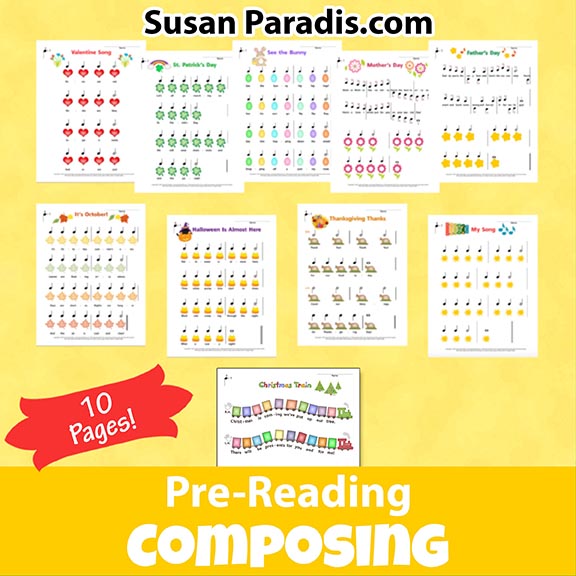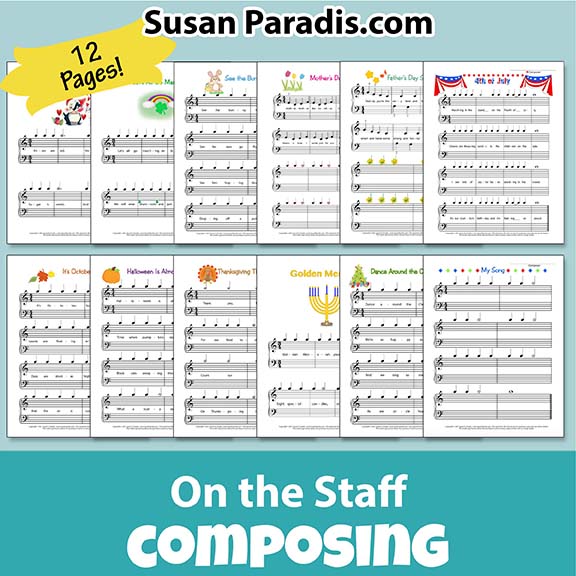Father’s Day Composing Activity
Click here for the prereading composing bundle in the store.
Click here for the on-the-staff composing bundle in the store.
[UPDATED: Now includes all the on-the-staff composing sheets.]
I didn’t want to leave off Dad, so I wrote a Father’s Day composing activity. Unless you have real young students, by this time of the year students are now reading notes.
Here is a suggested way to teach this activity. Step one is for beginning or problem readers. Skip this step if your student can sight read this section.
1. Learn the 8 measures that are already composed by tapping the rhythm while singing the words. Alternate between singing the words and your favorite way to count the rhythm. Find and circle the skips with a marker. Point out and draw a square around the leap of a 4th in measure 5 with another marker color. If they haven’t learned about 4ths, call it a leap. Play measure 6 in the air. Have the student play one hand while you play the other. Switch sides. On the fall board tap the rhythm using the correct hands for each staff. When the student is ready, play both hands.
2. Tap the rhythm of the composing section. Discuss some possible words that will go with the rhythm. If your student has some ideas, write them in. If the student comes up with a different rhythm, change the rhythm notes I wrote above the staff.
3. On another staff such as a white board or a large staff , show the 5 notes in this piece. Have your student play these notes and only use them in their composition. Unless they change hand positions, the last note should be bass clef middle C.
4. Going measure by measure, write in the notes on the staff. The student should play the previous measure before writing a new one so it makes musical sense. When finished, play the new section several times and adjust if necessary.
Sometimes students don’t like to follow suggestions and want to write notes that make no musical sense. There are several reasons for this such as a power play, silliness, a contrary nature, or genuine musical curiosity. I stay flexible and if I see a battle coming, I let them write whatever they want, as long as they can play it. Don’t engage your student in an attention seeking power play!



Granted, this is a bit challenging for the couple of students I have in mind, but your carefully outlined instructions make me eager to try, too.
And your mention of the “power play personalities” is quite comforting. Yes, this is not unknown!
Thanks so much!
Oh, thank you, thank you, thank you!!! My dear student I gave the Mother’s Day activities eyes just lit up. She will be so pleased to have one for her father, also!